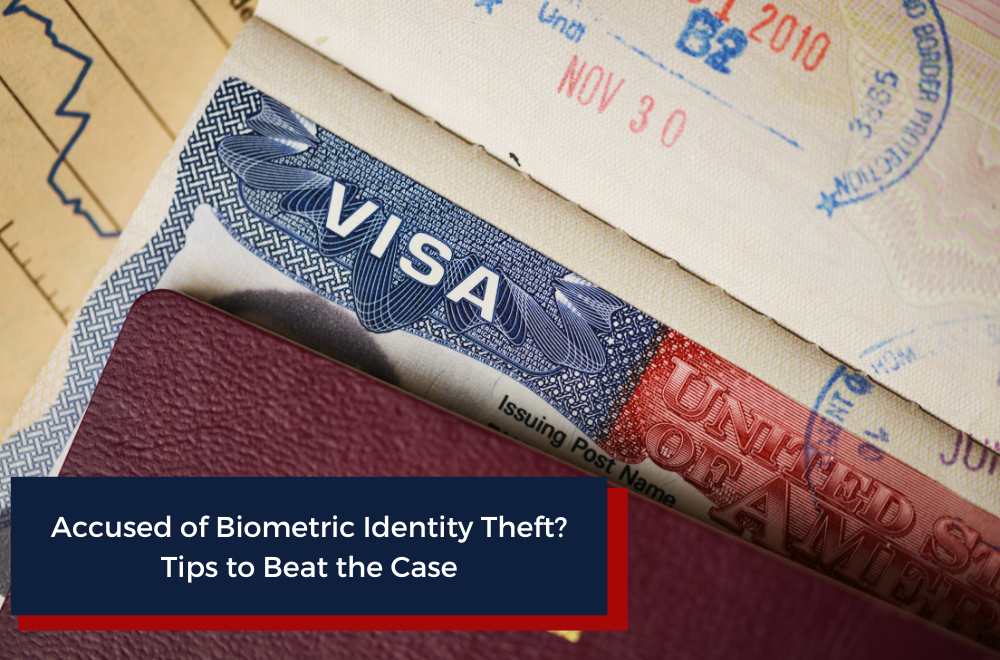
Fingerprints, voice analysis, iris patterns, and other biological features specific to one person offer more security than traditional PINs or passwords. But like any security system, biometric security has flaws, and people have found ways to exploit these flaws to commit biometric identity theft.
If the authorities have accused you of biometric identity theft in New Jersey, contact a criminal defense attorney immediately. Keith Oliver Criminal Law knows the pressure you’re under and the nuances of biometric systems. Today, we wanted to answer some questions about these cases, including what biometrics are, what is biometric identity theft, and what to do if you have identity fraud charges in New Jersey.
What Are Biometrics?
Biometrics is the term for using someone’s unique behavioral or physical traits to verify their identity and protect sensitive information. Fingerprint data analysis is the most common form of biometric technology, but these systems also use voice patterns, typing rhythms, iris patterns, or facial recognition.
Comparing Security Measures
The strength of biometric identification measures is that they rely on characteristics that are specific to one person. No one has the same fingerprints, for example, or the same face. By using specialized security equipment and scanners, computers can analyze someone’s unique physical or behavioral characteristics, check that information against their security information, and determine whether that person should have access to the protected information.
Because biometric authentication security relies on people’s innate traits, it offers many advantages to people and businesses alike. For one thing, your fingerprints and your face seldom change. Furthermore, you can’t forget your biometric information it’s a part of you, unlike a password or PIN.
Challenges and Limitations of Biometric Security
One significant challenge with biometric data security is that if someone manages to steal or copy something like your fingerprint, you can’t change it. Removing or updating biometric security credentials is much more complicated than changing a computer password.
The other common problem with biometric security systems is the technology that powers them. Biometric technologies like fingerprint scanners or cameras can break or malfunction, which can lead to accusations of identity theft if a data breach occurs in the biometric databases.
What To Do If Facing Identity Theft Accusations
If someone accuses you of biometric identity theft, stay calm and act fast. First and foremost, talk to a criminal defense attorney with experience handling identity theft cases. A New Jersey identity theft defense lawyer knows the ropes and can guide you through this sticky situation. Second, sharing all the case details with your lawyer is crucial. Even seemingly trivial details can make a big difference in these cases.
Next, make sure you keep all your communication and records safe. This includes emails, messages, and anything else that could help prove you didn’t do anything wrong. Finally, say nothing to the police or prosecutors without an attorney present. If you’re accused of stealing another person’s biometric data or other types of sensitive personal information, your attorney can protect your rights during these discussions and keep you from making a potentially disastrous mistake.
Contact Our New Jersey Identity Theft Defense Attorney to Learn More
The Keith Oliver Criminal Law team knows what you’re feeling in this situation and can help you work toward a favorable outcome in your case. Call us in New Jersey today or complete our contact form for a free consultation.

